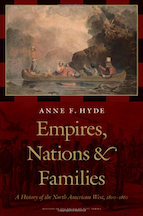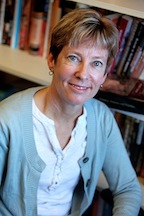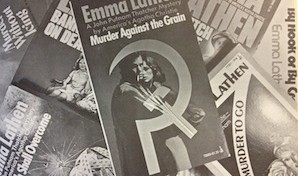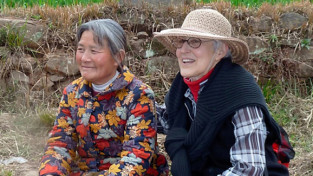A New Look at How the West Was Won
Many of us were taught in high school that, when the 1803 Louisiana Purchase doubled the size of the United States, Anglo immigrants settled a nearly virgin wilderness. The work of Colorado College history professor Anne Hyde ’82 turns this view on its head, revealing that a wide variety of people—French, Native Americans, Mexicans, English, British, and Americans among them—had already established complex, multi-ethnic family and trade networks throughout the vast region.
Hyde focused on what previous historians had ignored—how family associations shaped the West. “There wasn’t a powerful state in control of things,” she explains. “Empires came and went, so the real structures of power were families and family businesses.” Furthermore, many kinship groups were mixed-race families, so connections were often made across ethnic lines.” Tracking family relationships showed the “surprising prevalence of this mixed-race world, how long it lasted, and how difficult it was to maintain after the American conquest.”
Hyde burrowed into archival materials for years to support her thesis, using business records, personal letters, and other family documents to retrace this trail through the West’s development.
 The book that evolved from this painstaking research—Empires, Nations, and Families: A History of the North American West, 1800–1860—captured history’s top book honor, the 2012 Bancroft Prize, and was a finalist for the Pulitzer Prize in history. One reviewer called it “well researched and …instantly absorbing.”
The book that evolved from this painstaking research—Empires, Nations, and Families: A History of the North American West, 1800–1860—captured history’s top book honor, the 2012 Bancroft Prize, and was a finalist for the Pulitzer Prize in history. One reviewer called it “well researched and …instantly absorbing.”
Hyde says she was totally surprised by the awards and attention the book has garnered, and says the biggest change is that “I actually get to talk to people who have read the book now. Usually only the twelve people in your field have read it.”
Her history career began while still an MHC student. Although an American studies major, Hyde wrote a history honors project on miners’ unions in Reno, Nevada. “It was extremely fun, and I’m sure that’s why I did what I did later,” she says.
—By Emily Harrison Weir
September 11, 2012











Leave a Reply